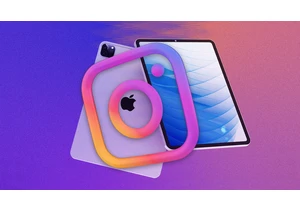“I was offered $20,000 to sell you Ozempic,” the text overlay reads on TikTok influencer Stella Kittrell’s post. “A year ago I got my first Ozempic collab offer and it was pretty nuts,” she explains. “A year ago it was $15,000 for a 15 second ad, now it’s $20,000 for a three-frame Instagram story.”
@stellakittrell Replying to @Brittney B
♬ original sound – stella kittrell
While Kittrell didn’t take the money, other’s have—and they’re part of a growing network of ambassadors for telehealth companies paid to promote compounded weight-loss medications. Many juggle these promotions as side gigs alongside traditional jobs, with their ongoing weight-loss transformations unfolding in real time on TikTok.
“I’ve been on a journey, a pretty big journey,” says Susan Graham to her 8,000 followers in a video. She goes on to discuss her eight-month weight-loss journey using tirzepatide. “I do compound now with Amble,” she continues, “if you want to change your life, my name is Susan and I work with Amble.” She then instructs viewers to click the link in her bio for semaglutide and tirzepatide at their fingertips. In another paid post with Zappy Health, lifestyle influencer Jasmines Vanity writes, “now that I’m down 25 pounds, I’m feeling amazing! Less bloating, I sleep better, no food noise, and my cardio is actually getting better in the gym,” offering followers $50 off their first month using her code.
@mommasusan2023 You don’t have to suffer with your health. Its not your fault! #myhealth #ambleptnr #myjesus #wevegotthis #youandme #health #friends #lovelife @JoinAmble
♬ original sound – mommasusan2023
Here, telehealth companies like Zappy Health and Amble Health act as intermediaries, connecting influencers and consumers with compounding pharmacies that produce medications like semaglutide and tirzepatide during FDA-declared shortages. In 2022, both drugs appeared on the FDA’s shortage list, opening the door for compounded versions to hit the market at discounted rates, according to The Cut.
Established companies like Hims and Ro have also since expanded into this market. Today, an estimated two million Americans rely on compounded GLP-1 drugs. The savviest telehealth companies now recruit influencers to promote these products, with top-tier promoters earning as much as $30,000 a month, according to The Washington Post.
However, this ecosystem’s time might be running out. The FDA recently announced that the tirzepatide shortage had been “resolved,” threatening access to compounded versions. A new bill is also currently under consideration with Congress proposing penalties for telehealth companies, social media influencers, and healthcare providers who benefit financially from sharing misleading information about prescription drugs on social media.
TikTok this year also introduced stricter rules, limiting weight-loss-related content to users 18 and older and excluding it from the “For You” page. What happens to the Ozempic influencers? That remains to be seen.
Accedi per aggiungere un commento
Altri post in questo gruppo

The “holy airball” trend that’s all over your For You page is the latest way the internet is sharing humble brags.
The videos, which have amassed millions of views on T

If you’ve ever fancied your chances in the Hunger Games, now you have the opportunity to volunteer as tribute.
Lionsgate just announced an open audition call for a minor role in

Welcome to AI Decoded, Fast Company’s weekly newsletter that breaks down the most important news in the world of AI. You can sign up to receive this newsletter ever

A man says he was tortured for weeks in a New York townhouse. Another in Paris was held for ransom and his finger cut off. A couple in Connecticut were carjacked, beaten and thrown into a van.

eOlipop’s surging popularity has taken the $60 billion soda industry by storm. As Gen Z and millennials ditch sugary sodas, Olipop is leading the pre-biotic beverage trend, sparking the like

Meta has spent 15 years shunning the iPad. Now, it seems they’re finally ready to embrace the tablet lovers.
WhatsApp users can finally text from the big screen. On Tuesday, Meta a

According to new research from Whop, a marketplace for digital products, one in three Gen Z consumers now make purchasing decisions based on recommendations from AI-generated influencers.
